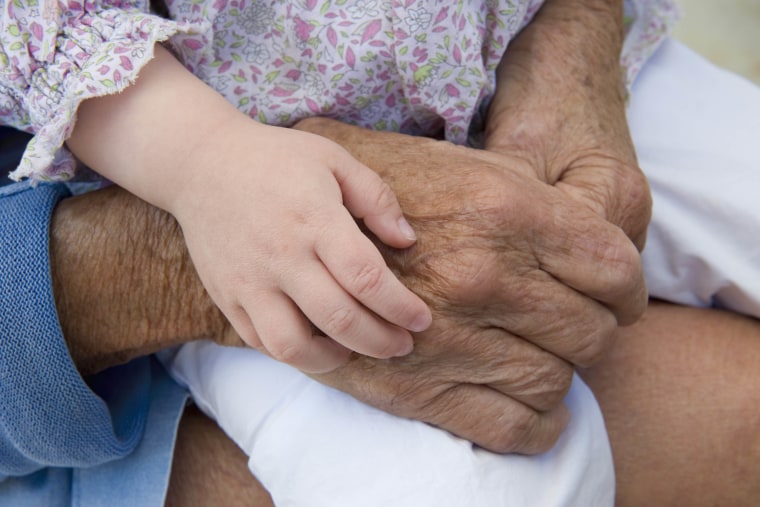In light of King Charles’ cancer diagnosis, royals have something in common with the rest of us: It's never easy to tell kids that a grandparent is sick. Experts say there's a sensitive and age-friendly way to have that conversation.
On Feb. 5, Buckingham Palace announced that King Charles has cancer, noting that the disclosure was his personal decision, "to prevent speculation and in the hope it may assist public understanding for all those around the world who are affected by cancer."
When it's your own family, parents may struggle with how to tell children about a grandparent's cancer diagnosis, or any other illness. An expert offers advice:
How to talk to kids about illness
Sheryl Ziegler, a psychologist in Denver, shares pointers for having this discussion with kids.
"Stay calm, regardless if you know the diagnosis is terminal," Ziegler tells TODAY.com. "Because most of the time, we really don't know."
Tell kids that you'll dispense information, as it comes. "That way, you're in the same boat and they won't sit and worry," says Ziegler.
"If you get emotional, label it," she says. "If you don't — if you cover your face or leave the room — kids might think you're not telling the truth or that it's worse than they thought," she says. "It's OK to say, 'I'm worried.'"
How to respond to children's questions
Be prepared for a scope of responses from children.
"Kids could ask a bunch of questions or freeze," she says. "Don't misread that as anything but a stress response."
According to Ziegler, when kids hear news like divorce, death or disease, they can turn to silence while processing so much information. If your child does ask serious questions ("Will grandpa die?"), provide rudimentary information.
"Let them know treatment is starting, you feel good about the doctors and everyone is doing their best to keep their grandparent healthy," she says.
How to prepare children for changes
A separate conversation happens if grandparents appear sick.
"You can prepare children by explaining, 'Before we visit (or call) grandpa, I want to let you know that he might look or act differently. Is there anything you'd like to do to put a smile on his face?'" she suggests.
If there's a late-stage diagnosis, be direct, says Ziegler, bearing in mind that people tend to hold onto small percentages of hope.
Ziegler advocates that parents say: "We found out terrible news for grandpa. It's called late-stage cancer, which means he's really sick. The doctors will do their best but we're really not sure if it will work."
How to tailor your words to their age
When children are on the younger side, use the word "sick," which is familiar, says Ziegler. Older kids might want to explore more.
"Big kids have freedom of thought and problem-solving skills, so they might say, 'Does cancer run in our family?' to connect the dots," she says. "They might think, 'How does this impact me?' which is a healthy response."
Encourage questions, even if you don't have answers.
"Kids have wild imaginations and if you don't share information," says Ziegler," they might make it up in their heads or seek it elsewhere."
